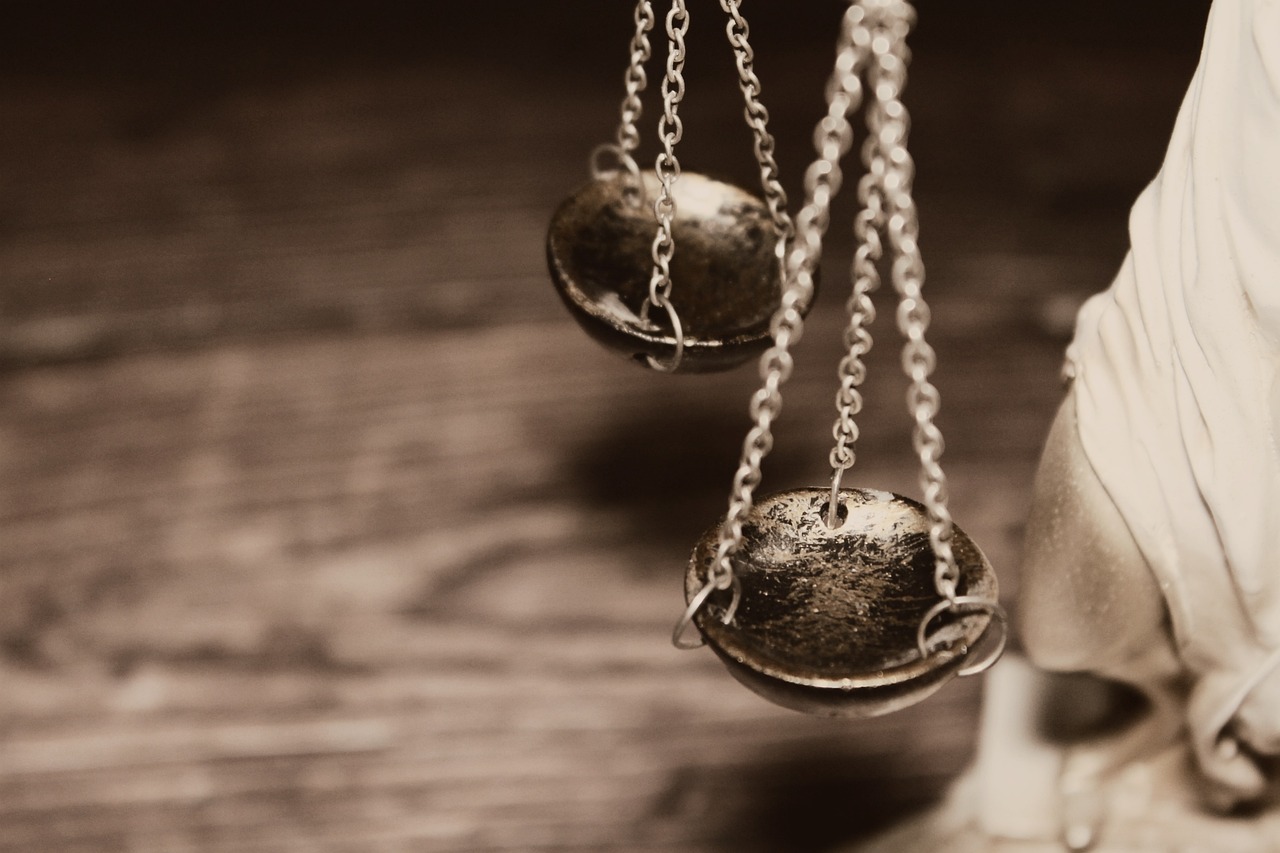
Zero Tolerance for Law Firm Malpractice
Law Firm Mal Practice” podcast delves into the intricate realm of legal ethics, examining cases of professional misconduct and negligence within law firms. Each episode dissects real-life scenarios, from breaches of client trust to mismanagement of cases, offering in-depth analysis and insights into the complexities of legal malpractice.
Hosted by seasoned legal experts and industry insiders, the podcast navigates through the nuances of ethical dilemmas, regulatory frameworks, and the consequences of malpractice. Whether you’re a legal professional, student, or simply intrigued by the legal world, “Law Firm Mal Practice” provides compelling narratives and valuable lessons on maintaining integrity and accountability in the legal profession.


Years of service


news and event
Stay updated on current affairs and happenings with our comprehensive coverage of news and events from around the world.
When life takes an unexpected turn due to illness or injury, and you find yourself unable to work for an extended period, securing long term disability benefits becomes crucial. In Chicago, where the cost of living and healthcare can be significant, long term disability lawyers play an essential role in helping individuals protect their financial security. This article explores the importance of long term disability lawyers in Chicago, how they assist claimants, and why hiring one can make a profound difference in your case.For more details click this link https://www.reynoldsand.com/practice-areas/long-term-disability-lawyers-chicago/.
Understanding Long Term Disability Benefits in Chicago
Long term disability (LTD) benefits are designed to provide financial support to individuals who are unable to work due to a serious illness or injury that lasts for an extended time—typically beyond the short-term disability coverage period. These benefits are often provided through employer-sponsored insurance plans or purchased independently. However, obtaining LTD benefits is rarely straightforward. The application process is complex, and insurance companies often scrutinize claims closely, making it difficult for claimants to receive the benefits they deserve.
The Role of Long Term Disability Lawyers in Chicago
Long term disability lawyers in Chicago specialize in representing individuals who are seeking LTD benefits. Their expertise lies in understanding the legal nuances of disability insurance policies, state laws, and the tactics insurance companies use to deny or delay claims. A skilled long term disability lawyer in Chicago acts as an advocate, guiding clients through the claims process, ensuring that all documentation is correctly submitted, and fighting unfair denials or terminations of benefits.
Why You Need a Long Term Disability Lawyer in Chicago
Many people assume that applying for long term disability benefits is a simple paperwork task. However, insurance companies frequently reject claims based on minor technicalities or questionable interpretations of medical evidence. In these situations, long term disability lawyers in Chicago become invaluable. They have the experience to identify errors or omissions in the insurer’s assessment and can gather compelling medical evidence and expert testimony to strengthen your case.
Moreover, long term disability lawyers in Chicago understand the deadlines and procedural requirements essential to preserving your claim. Missing a deadline or failing to respond adequately to an insurer’s requests can result in losing your benefits permanently. With a lawyer by your side, you are less likely to make costly mistakes that jeopardize your financial stability.
How Long Term Disability Lawyers in Chicago Help You Win Your Case
Long term disability lawyers in Chicago provide comprehensive support throughout the entire claims process. They start by reviewing your insurance policy to understand the specific terms and conditions of your coverage. This step is crucial because each policy may have different definitions of disability, waiting periods, and benefit amounts.
Next, your lawyer helps you gather the necessary medical records, physicians’ statements, and other documentation needed to prove your disability. They also coordinate with medical experts to provide independent assessments that reinforce your claim. This thorough approach ensures that your application is well-supported and less vulnerable to rejection.
If your claim is denied, long term disability lawyers in Chicago are prepared to handle appeals and, if necessary, file lawsuits against the insurance company. Their knowledge of the legal system and prior experience with similar cases give them a significant advantage in negotiating settlements or winning at trial.
The Benefits of Hiring a Local Long Term Disability Lawyer in Chicago
Choosing a long term disability lawyer based in Chicago offers distinct advantages. Local lawyers are familiar with Illinois state laws that can affect your claim, including specific protections for employees and regulations governing insurance companies. They also often have established relationships with local medical professionals and expert witnesses who can provide credible testimony in support of your case.
Furthermore, a Chicago-based lawyer understands the local court system and procedural requirements better than out-of-state attorneys. This familiarity can streamline the legal process and improve your chances of a favorable outcome.
What to Look for When Hiring a Long Term Disability Lawyer in Chicago
Not all lawyers have the same level of expertise in handling long term disability claims. When searching for a long term disability lawyer in Chicago, consider the following factors:
Experience: Look for lawyers who specialize in disability law and have a proven track record of successfully representing clients in LTD cases.
Reputation: Check client reviews, ask for referrals, and research their standing with local bar associations.
Communication: Your lawyer should be accessible, responsive, and willing to explain the legal process in clear terms.
Fees: Many long term disability lawyers in Chicago work on a contingency fee basis, meaning they only get paid if you win your case. Clarify fee arrangements upfront.
The Emotional and Financial Impact of Long Term Disability Claims
Dealing with a long term disability can be overwhelming, both emotionally and financially. The uncertainty about your income, medical bills, and future can add stress during an already difficult time. Long term disability lawyers in Chicago not only provide legal representation but also offer peace of mind by managing the legal complexities on your behalf.
Having a dedicated advocate allows you to focus on your health and recovery, knowing that your claim is in capable hands. This support can be invaluable in helping you regain stability and confidence.
Conclusion
Long term disability lawyers in Chicago are essential allies for anyone facing the daunting process of securing long term disability benefits. Their legal expertise, local knowledge, and commitment to client advocacy can significantly improve your chances of obtaining the benefits you need and deserve. If you or a loved one is struggling to navigate a long term disability claim, consulting a qualified long term disability lawyer in Chicago is a critical step toward protecting your financial future and gaining the support necessary to move forward with confidence.
Ask ChatGPT
Becoming a U.S. citizen is a major milestone for immigrants, one that symbolizes stability, opportunity, and full participation in American society. However, the path to citizenship is often complex, and the stakes are high. For those navigating the process in Illinois, Citizenship Attorneys Chicago play a crucial role in making sure every step is taken with precision and confidence.
Understanding the Role of Citizenship Attorneys in Chicago
When it comes to immigration law, no two cases are exactly alike. Citizenship attorneys in Chicago specialize in guiding clients through the nuances of U.S. naturalization law. These legal professionals assist with preparing N-400 applications, addressing issues of continuous residence, physical presence, moral character, and even complicated matters such as criminal records or past immigration violations. Their expertise ensures that clients meet every requirement and submit thorough, accurate documentation to avoid unnecessary delays or denials.
Why Legal Representation Matters in the Naturalization Process
Although U.S. Citizenship and Immigration Services (USCIS) allows applicants to apply for naturalization without a lawyer, the reality is that immigration law is dense and ever-changing. Citizenship attorneys in Chicago stay current with these shifts in policy, providing clients with informed advice and proactive strategies. A simple error on an application, a missed interview, or an overlooked eligibility factor can result in rejection. With a dedicated attorney, applicants significantly increase their chances of a smooth and successful process.
Tailored Support for Diverse Communities
Chicago is one of the most culturally diverse cities in the United States, home to large immigrant populations from Latin America, Asia, Europe, and Africa. Citizenship attorneys in Chicago understand the specific cultural and legal challenges these communities face. Whether helping someone who has lived in the U.S. under Temporary Protected Status or assisting a refugee seeking permanent status, these attorneys offer culturally sensitive, multilingual support tailored to each client’s needs.
Dealing with Complications and Legal Barriers
Some individuals face roadblocks that make the naturalization process more complicated—criminal history, previous immigration violations, or questions about eligibility. Citizenship attorneys in Chicago are trained to analyze such complex situations. They can help prepare waivers, collect additional documentation, and even represent clients in immigration court if necessary. Their role is not just administrative; it’s often deeply strategic, involving legal argumentation and advocacy.
Citizenship Attorneys in Chicago and the Naturalization Interview
The naturalization interview is a crucial component of the citizenship process. It involves not only a review of the application but also a civics test and an English-language assessment. Citizenship attorneys in Chicago prepare their clients for these interviews by conducting mock interviews, clarifying what to expect, and offering strategies to address difficult questions. For many, having a trusted attorney nearby during this stage brings a sense of reassurance and preparation.
Support Beyond the Application
Becoming a citizen doesn’t end with submitting forms. Many individuals need assistance with follow-up communications, biometric appointments, and responding to USCIS requests for evidence. Citizenship attorneys in Chicago continue to support their clients through these stages, ensuring they stay informed and on track. In the event of a delay or complication, attorneys can follow up with USCIS on behalf of their clients, often expediting the process or resolving administrative issues.
Community Outreach and Pro Bono Services
In a city known for its activism and social justice efforts, many citizenship attorneys in Chicago also engage in community outreach. They participate in legal aid events, citizenship clinics, and educational workshops. For immigrants who cannot afford private representation, several attorneys provide pro bono services or work through nonprofit organizations. This commitment helps ensure that the path to citizenship remains open to all, regardless of income or background.
A Trusted Advocate in a Time of Change
Immigration policies in the U.S. have seen dramatic changes over the years, from shifts in federal priorities to new regulations and enforcement actions. Citizenship attorneys in Chicago serve as stable, informed advocates during these uncertain times. Their ability to interpret and respond to policy changes gives immigrants a reliable source of support, helping them adapt to new legal landscapes without losing sight of their ultimate goal.
Choosing the Right Citizenship Attorney in Chicago
Finding the right legal representation is essential. When selecting from among the many citizenship attorneys in Chicago, clients should look for professionals with a track record of success, clear communication, and a deep understanding of both immigration law and the local community. Reading client testimonials, checking credentials, and asking about case experience can help ensure a good fit.
Conclusion: Empowering Immigrants Through Legal Expertise
The journey to U.S. citizenship is one filled with hope, but also with legal complexity. Citizenship attorneys in Chicago provide a beacon of guidance through this process, helping individuals and families overcome obstacles, understand their rights, and ultimately achieve their American dream. Whether you are just beginning your naturalization journey or facing challenges along the way, the support of an experienced attorney can make all the difference.
The legal profession stands as a bastion of justice and integrity, with attorneys entrusted to uphold the rule of law and protect their clients’ interests. However, amidst the complexities of legal practice, instances of malpractice can arise, casting shadows over the profession’s ethical standards. Law firm malpractice, characterized by negligent or unethical conduct, not only jeopardizes client trust but also undermines the foundations of the legal system. This article ventures into the intricate terrain of law firm malpractice, examining its root causes, far-reaching consequences, and the imperative need for preventive measures.
Understanding Law Firm Malpractice:
Law firm malpractice encompasses a spectrum of behaviors by legal practitioners that breach professional standards and result in harm or loss to clients. These behaviors may include:
1. Breach of Fiduciary Duty: Attorneys owe a fiduciary duty to act in the best interests of their clients. Breaching this duty through conflicts of interest, self-serving actions, or neglecting client welfare constitutes malpractice.
2. Incompetence or Negligence: Failure to perform legal duties with the requisite competence and diligence can lead to malpractice claims. This may involve inadequate legal research, missed deadlines, or substandard representation, resulting in adverse outcomes for clients.
3. Misrepresentation or Fraud: Deliberate misrepresentation of facts, fabrication of evidence, or misleading statements by attorneys can constitute malpractice, undermining the integrity of the legal process and causing harm to clients and other parties involved.
4. Conflict of Interest: Law firms must navigate complex ethical boundaries to avoid conflicts of interest that compromise their ability to represent clients effectively. Failure to disclose conflicts or representing conflicting interests can lead to malpractice allegations.
Consequences of Law Firm Malpractice:
The consequences of law firm malpractice reverberate across multiple dimensions, affecting clients, legal practitioners, and the broader legal community. For clients, malpractice can result in financial losses, adverse legal outcomes, and profound emotional distress. Trust in the legal system may erode, leading to skepticism and reluctance to seek legal assistance in the future.
Moreover, law firm malpractice tarnishes the reputation of the entire legal profession. Instances of malpractice undermine public confidence in the integrity and ethics of attorneys, potentially deterring individuals from seeking justice through legal channels. This erosion of trust not only impacts the malpracticing firm but also has cascading effects throughout the legal community.
Legal practitioners implicated in malpractice face professional and personal repercussions. In addition to potential disciplinary actions by state bar associations, such as license suspension or revocation, lawyers may experience irreparable damage to their professional reputation. Rebuilding trust and credibility after being associated with malpractice can be a daunting endeavor, impacting career trajectories and personal well-being.
Prevention Strategies:
Preventing law firm malpractice demands a proactive and comprehensive approach, encompassing ethical standards, risk management protocols, and ongoing professional development. Here are some strategies to mitigate the risk of malpractice:
1. Adherence to Ethical Guidelines: Law firms must prioritize adherence to the highest ethical standards, including integrity, honesty, and client confidentiality. Establishing clear ethical guidelines and providing regular training and oversight can help ensure compliance and prevent inadvertent violations.
2. Competence and Due Diligence: Attorneys must maintain competence in their respective areas of practice and exercise due diligence in representing clients. This includes staying abreast of legal developments, conducting thorough research, and seeking assistance or collaboration when facing unfamiliar or complex matters.
3. Conflict Checking Mechanisms: Implementing robust conflict checking mechanisms is essential to identifying and addressing conflicts of interest promptly. Utilizing technology solutions and maintaining comprehensive conflict databases can help law firms navigate ethical dilemmas and avoid malpractice allegations.
4. Communication and Transparency: Open communication with clients regarding case developments, potential risks, and legal strategies fosters trust and reduces the likelihood of misunderstandings or disputes. Lawyers should provide clear and transparent explanations of legal processes and decisions, empowering clients to make informed choices.
5. Continuous Improvement: Embracing a culture of continuous improvement enables law firms to adapt to evolving legal landscapes and emerging risks. Regularly reviewing and updating internal policies, procedures, and training programs ensures that attorneys remain vigilant against malpractice pitfalls.
Conclusion:
Law firm malpractice poses significant challenges to the legal profession, threatening client trust, professional integrity, and the credibility of the legal system. By understanding the root causes of malpractice and implementing proactive prevention strategies, law firms can mitigate risks and uphold the highest standards of ethical conduct and professionalism. Ultimately, fostering a culture of accountability, transparency, and continuous improvement is paramount to safeguarding the interests of clients and preserving the integrity of the legal profession.
In the complex and often high-stakes world of legal practice, the trust between clients and their attorneys is paramount. However, despite the rigorous training and ethical standards within the legal profession, instances of malpractice can occur, posing significant risks to both clients and practitioners alike. Law firm malpractice, characterized by negligent or unethical conduct, can have far-reaching consequences, ranging from financial loss to reputational damage. This article examines the nuances of law firm malpractice, delving into its causes, implications, and strategies for prevention.
Understanding Law Firm Malpractice:
Law firm malpractice encompasses a wide array of unethical or negligent behaviors by legal practitioners that result in harm or loss to their clients. These malpractices can manifest in various forms, including:
1. Breach of Fiduciary Duty: Attorneys are bound by a fiduciary duty to act in the best interests of their clients. Breaching this duty through conflicts of interest, self-serving actions, or prioritizing personal gain over client welfare constitutes malpractice.
2. Incompetence or Negligence: Failure to exercise the level of competence and diligence expected of a reasonable attorney can lead to malpractice claims. This may involve inadequate legal research, missed deadlines, or substandard representation, resulting in adverse outcomes for the client.
3. Misrepresentation or Fraud: Deliberate misrepresentation of facts, fabrication of evidence, or misleading statements by attorneys can constitute malpractice, undermining the integrity of the legal process and causing harm to clients and other parties involved.
4. Conflict of Interest: Law firms must navigate complex ethical boundaries to avoid conflicts of interest that compromise their ability to represent clients effectively. Failure to disclose conflicts or representing conflicting interests can lead to malpractice allegations.
Consequences of Law Firm Malpractice:
The consequences of law firm malpractice can be severe and multifaceted, impacting clients, legal practitioners, and the broader legal community. For clients, experiencing malpractice can result in financial losses, adverse legal outcomes, and emotional distress. Trust in the legal system may be eroded, leading to disillusionment and reluctance to seek legal assistance in the future.
Moreover, law firm malpractice tarnishes the reputation of the entire legal profession. Instances of malpractice undermine public confidence in the integrity and ethics of attorneys, potentially deterring individuals from seeking legal recourse when needed. This erosion of trust not only affects the malpracticing firm but also has ripple effects throughout the legal community.
Legal practitioners implicated in malpractice face professional and personal repercussions. In addition to potential disciplinary actions by state bar associations, such as license suspension or revocation, lawyers may suffer irreparable damage to their professional reputation. Rebuilding trust and credibility after being associated with malpractice can be a formidable challenge, impacting career prospects and personal well-being.
Prevention Strategies:
Preventing law firm malpractice requires a proactive and multifaceted approach that encompasses ethical standards, risk management protocols, and ongoing professional development. Here are some strategies to mitigate the risk of malpractice:
1. Adherence to Ethical Guidelines: Law firms must prioritize adherence to the highest ethical standards, including integrity, honesty, and client confidentiality. Establishing clear ethical guidelines and providing regular training and oversight can help ensure compliance and prevent inadvertent violations.
2. Competence and Due Diligence: Attorneys must maintain competence in their respective areas of practice and exercise due diligence in representing clients. This includes staying abreast of legal developments, conducting thorough research, and seeking assistance or collaboration when facing unfamiliar or complex matters.
3. Conflict Checking Mechanisms: Implementing robust conflict checking mechanisms is essential to identifying and addressing conflicts of interest promptly. Utilizing technology solutions and maintaining comprehensive conflict databases can help law firms navigate ethical dilemmas and avoid malpractice allegations.
4. Communication and Transparency: Open communication with clients regarding case developments, potential risks, and legal strategies fosters trust and reduces the likelihood of misunderstandings or disputes. Lawyers should provide clear and transparent explanations of legal processes and decisions, empowering clients to make informed choices.
5. Continuous Improvement: Embracing a culture of continuous improvement enables law firms to adapt to evolving legal landscapes and emerging risks. Regularly reviewing and updating internal policies, procedures, and training programs ensures that attorneys remain vigilant against malpractice pitfalls.
Conclusion:
Law firm malpractice poses significant challenges to the legal profession, threatening client trust, professional integrity, and the credibility of the legal system. By understanding the root causes of malpractice and implementing proactive prevention strategies, law firms can mitigate risks and uphold the highest standards of ethical conduct and professionalism. Ultimately, fostering a culture of accountability, transparency, and continuous improvement is essential to safeguarding the interests of clients and preserving the integrity of the legal profession.
In the realm of legal practice, the trust between a client and their attorney is sacrosanct. However, despite the ethical standards and rigorous training within the legal profession, instances of malpractice can occur, casting shadows over the integrity of law firms. Law firm malpractice, characterized by negligent or unethical conduct, not only undermines the trust essential for the legal system but also imposes severe consequences on both clients and practitioners. This article delves into the intricacies of law firm malpractice, exploring its implications, causes, and preventive measures.
Understanding Law Firm Malpractice:
Law firm malpractice encompasses a spectrum of unethical or negligent behaviors by legal practitioners that result in harm or loss to their clients. These malpractices can manifest in various forms, including but not limited to:
1. Breach of Fiduciary Duty: Lawyers owe a fiduciary duty to their clients, requiring them to act in the client’s best interest. Breaching this duty through conflicts of interest, self-dealing, or prioritizing personal gains over client welfare constitutes malpractice.
2. Incompetence or Negligence: Failure to perform legal duties with the level of competence and diligence expected of a reasonable attorney can lead to malpractice claims. This may involve inadequate research, missed deadlines, or substandard representation, resulting in adverse outcomes for the client.
3. Misrepresentation or Fraud: Deliberate misrepresentation of facts, fabrication of evidence, or misleading statements by attorneys can constitute malpractice, undermining the integrity of the legal system and causing harm to clients and other parties involved.
4. Conflict of Interest: Law firms must navigate complex ethical boundaries to avoid conflicts of interest that compromise their ability to represent clients effectively. Failure to disclose conflicts or representing conflicting interests can lead to malpractice allegations.
Consequences of Law Firm Malpractice:
The repercussions of law firm malpractice extend far beyond financial losses or legal sanctions. For clients, experiencing malpractice can shatter trust in the legal system and inflict significant emotional distress. Financial ramifications, including loss of assets or settlements, can exacerbate the already stressful situation, leaving clients disillusioned and seeking recourse.
Moreover, law firm malpractice tarnishes the reputation of the entire legal profession. Public perception of attorneys as guardians of justice diminishes when instances of malpractice come to light. This erosion of trust not only affects the malpracticing firm but also undermines confidence in the legal system as a whole, potentially deterring individuals from seeking legal assistance when needed.
Legal practitioners implicated in malpractice face professional and personal consequences. Aside from potential disciplinary actions by state bar associations, including license suspension or revocation, lawyers may suffer irreparable damage to their professional reputation. Rebuilding trust and credibility after being associated with malpractice can be a daunting task, impacting career prospects and personal well-being.
Prevention Strategies:
Preventing law firm malpractice requires a multifaceted approach encompassing ethical standards, risk management protocols, and continuous professional development. Here are some strategies to mitigate the risk of malpractice:
1. Adherence to Ethical Guidelines: Law firms must uphold the highest ethical standards, prioritizing integrity, honesty, and client confidentiality. Establishing robust ethical guidelines and ensuring compliance through regular training and oversight can prevent inadvertent violations that may lead to malpractice.
2. Competence and Due Diligence: Attorneys must maintain competence in their respective areas of practice and exercise due diligence in representing clients. This includes staying abreast of legal developments, conducting thorough research, and seeking assistance or collaboration when facing unfamiliar or complex matters.
3. Conflict Checking Mechanisms: Implementing rigorous conflict checking mechanisms is crucial to identifying and addressing conflicts of interest promptly. Utilizing technology solutions and maintaining comprehensive conflict databases can help law firms navigate ethical dilemmas and avoid malpractice allegations.
4. Communication and Transparency: Open communication with clients regarding case developments, potential risks, and legal strategies fosters trust and reduces the likelihood of misunderstandings or disputes. Lawyers should provide clear and transparent explanations of legal processes and decisions, empowering clients to make informed choices.
5. Continuous Improvement: Embracing a culture of continuous improvement enables law firms to adapt to evolving legal landscapes and emerging risks. Regularly reviewing and updating internal policies, procedures, and training programs ensures that attorneys remain vigilant against malpractice pitfalls.
Conclusion:
Law firm malpractice poses significant challenges to the legal profession, jeopardizing client trust, professional integrity, and the credibility of the legal system. By understanding the root causes of malpractice and implementing proactive prevention strategies, law firms can mitigate risks and uphold the highest standards of ethical conduct and professionalism. Ultimately, fostering a culture of accountability, transparency, and continuous improvement is essential to safeguarding the interests of clients and preserving the integrity of the legal profession.


